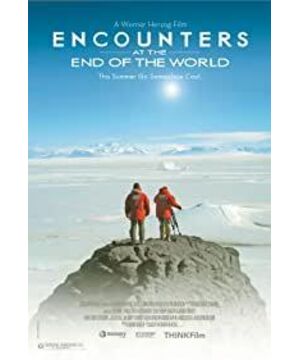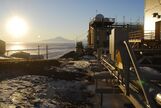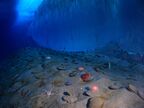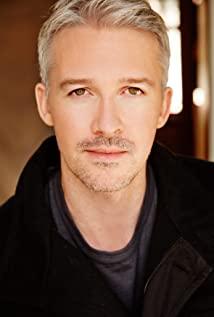There is a big difference between adventure and adventure, and I am curious. People, I am constantly looking for new pictures and places with a sense of majesty, but I am not an adventurer, although people often label me this despised label. For me, adventure is a concept that only applies to men and women who lived in the early days of history, such as medieval knights exploring unknown places. Since then, this concept has continued to degenerate, and by the time people tried to reach the North and South poles in the 19th and 20th centuries, it had become an ugly and embarrassing term. This behavior runs counter to the definition of risk in my mind, because the purpose of that behavior is only for self-promotion and nothing else. There is nothing interesting about the Arctic. There are only water and drifting glaciers. I think it would be embarrassing to treat this kind of behavior as a great adventure that has been passed down through the generations.
The film "Meeting at the End of the World" is about Antarctica. I am curious how herzog shoots a place with "only water and drifting glaciers".
Of course, Herzog will not make a scenery film for people. After about 1 minute of "beautiful" picture, he tells you directly: "...I have decided that I will not make a movie about penguins...I am concerned about nature. The question is something else." The core of Herzog's attention is still the special group in the ordinary sense, who are the people who stay in the Antarctic, and what makes these people come to the Antarctic. In the film, biologists, drivers, biologists, linguists, etc., under the guidance of the director, joined the film characters by herzog (such as Aguirre in "The Scourge", Fitzgerald De, Steiner in "The Ecstasy of Woodcarver Steiner", the indigenous people in "The Place Where Green Ant Dreams", etc.) built a huge family, and their blood is full of fanatical dreams. In this film Known as the "professional dreamer". Herzog is most interested in these people and always respects them. Only the things that these people come into contact with their bodies (jungles, peaks, glaciers, etc.) match incomparably. All herzog's movies start from these people. The mystery and majesty of the jungle are also the characteristics of these people. The animal that "uses ink" the most in this film is a penguin who escaped from the group and turned towards the mountains. The penguins in Herzog's lens are like those weird people!
About 70 minutes later, herzog repeated the same sentence as in the book: "...It is sad that Antarctica and Mount Everest are not disturbed because of human respect for them. But human exploration The original intention has long ceased. This has become a new project in the Guinness Book of World Records. Scott and Amundsen are obviously the earliest protagonists. Since then, they have gradually degenerated into a ridiculous adventure. A Frenchman drove backwards through the Sahara. In the desert, I am waiting to be the first person to climb Mount Everest barefoot, or the first person to step on the pogo to the South Pole...". Here, herzog's irony of this "self-propaganda" behavior is merciless, although herzog's voice is not fluctuating. Next, the spectacle man in the picture is extremely funny, and the narration changes from herzog to the confident and heroic ambition of the spectacle man. "Herzog on Herzog" also mentioned the French man in front of him, saying: "On the other hand, I like the man who drove the Citroen 2CV all the way through the Sahara in reverse gear. The French in the desert." This seems to be contradictory to this film.
The oral experience of the legendary woman in the film is almost comparable to herzog's experience in filming. Herzog almost preached this amazing life through the mouth of that woman! This is another version of herzog's legendary experience.
The film inevitably and necessarily talks about the grand issues of nature, civilization, human beings, language, species, etc. This makes the film a little more complex. Herzog is a passionate person, he will not be as cold as Michael Haneke. He likes to use music to take you into the picture. Not long after the start of the film, Herzog said: "Most of the time here, the weather is as bright as the obvious film, which is very frustrating, because my skin and my film hate the sun." To the ridiculous picture of the man with glasses in the film, and the later sci-fi-like imagination: "...The extinction of dinosaurs is just one of them. When we disappear, what will happen thousands of years in the future...", the aliens are in Antarctica sees objects left by humans. Herzog smiled and recounted "his passionate, curious, and humorous and satirical views."
As for the film's chaos due to its complexity, it does not diminish its beauty at all. Herzog once said: "There are some things that young filmmakers should learn early in the morning: perfect movies don't exist."
View more about Encounters at the End of the World reviews








